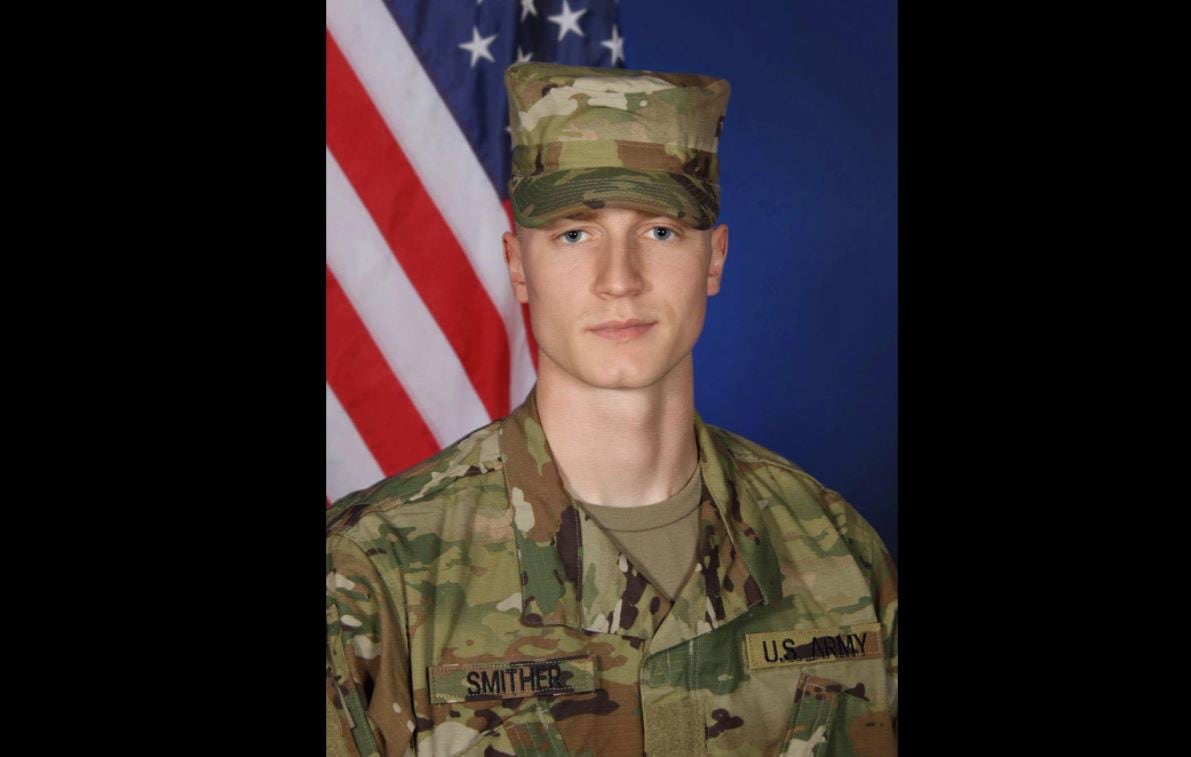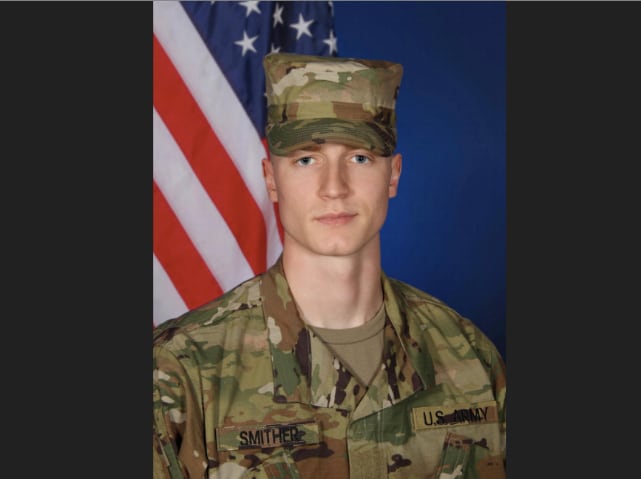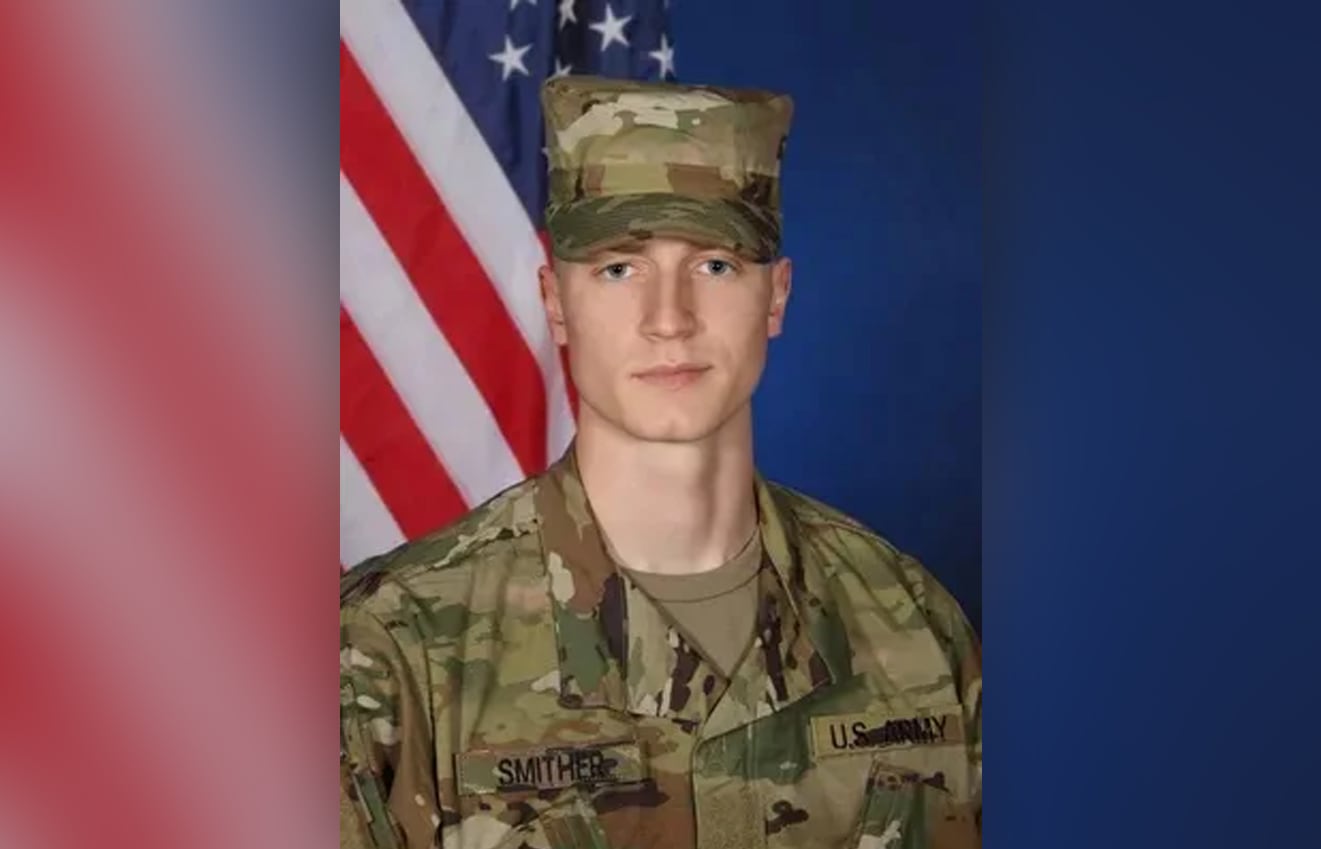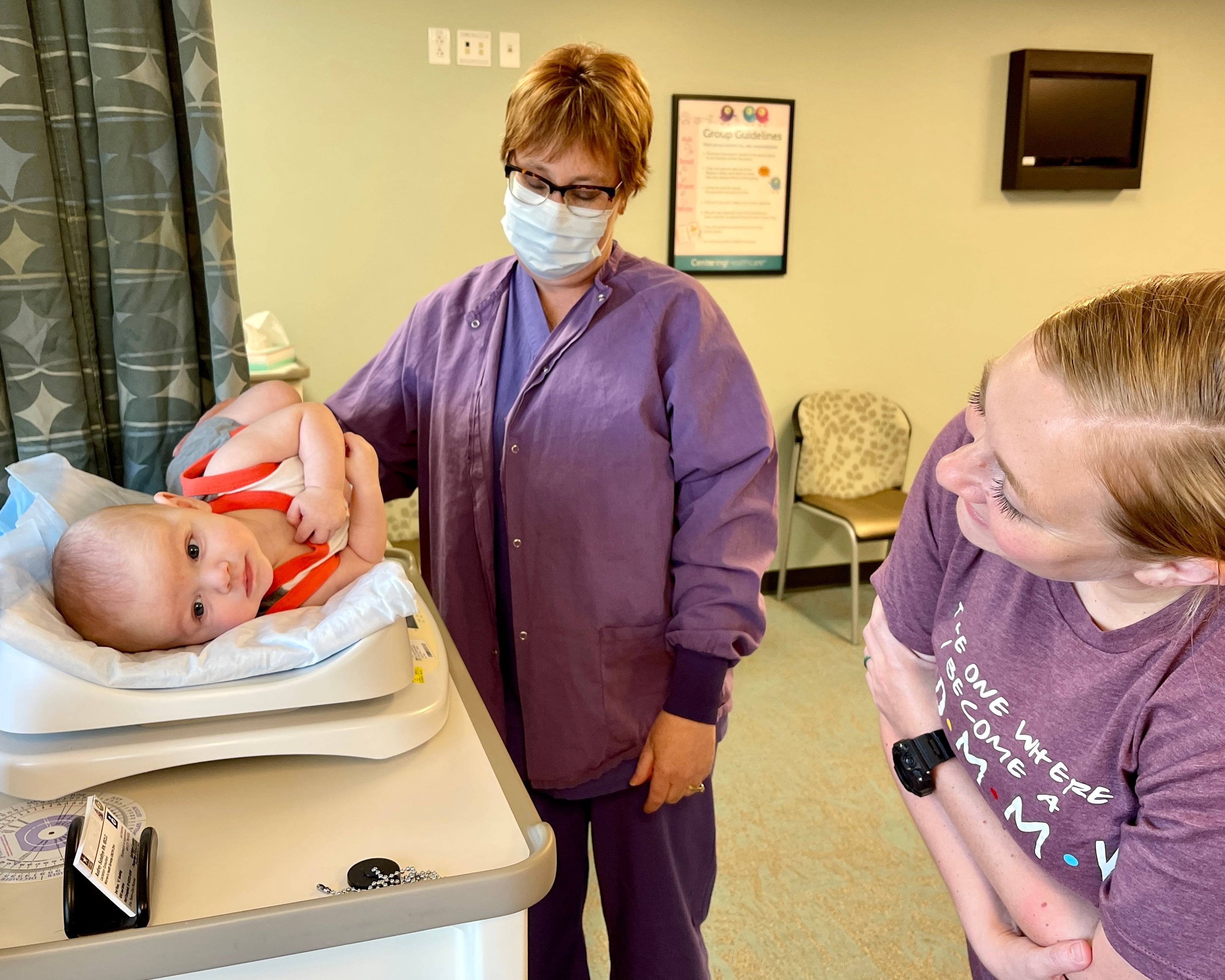This article was published as part of a content-sharing agreement between Army Times and The Fayetteville Observer.
The mother of a then-Fort Bragg soldier found dead in his barracks room in January 2020 hopes service members will check on each other to prevent future deaths like her son’s.
RELATED

Pvt. 2nd Class Caleb Smither’s mother, Heather Baker, spoke to The Fayetteville Observer last June about her visit to Washington, D.C., to make members of Congress and Army leaders aware of her son’s death and make changes so missteps don’t happen again.
During a phone interview from her Lubbock home Wednesday, Baker said that since last summer, she’s met with Secretary of the Army Christine Wormuth and nearly 30 members of Congress to tell them about her late son.
Baker said she has letters from her local members of Congress who “petitioned for a list of things,” which included asking that the Army reopen Smither’s death case and that Wormuth met with Baker.
“In less than a year, she gave me both of those things,” Baker said. “The very first thing she said to me was, ‘Mrs. Baker, I’m sorry that the Army failed you and your son,’ and I said, ‘Wow, thank you, ma’am, so much.’”
‘Smitty Check’
Smither, 19, was found dead in his room at Fort Bragg, now known as Fort Liberty, on Jan. 22, 2020, seven weeks after being assigned to the 82nd Airborne Division and five days after he was given an order to rest after striking his head in the motor pool earlier in the month.
Months after his death, doctors concluded that Smither’s cause of death was bacterial meningitis.
Smither died alone in his room during a four-day Martin Luther King Jr. holiday weekend, despite other paratroopers witnessing signs he was unwell, according to an Army Criminal Investigation Division report.
“The leadership failed for at least four days to check on the health and welfare of a junior paratrooper who injured his head, vomited, went to the emergency room twice, had a concussion, and seemingly was no better as the week progressed,” the investigating officer wrote in the CID report.
RELATED

According to the CID report, Smither’s acting squad leader told investigators he lied during an initial report about the last time he checked on Smither. A corporal claimed he checked on Smither after noticing Smither’s behavior at formation, but was unable to provide a call log showing the contact.
The informal investigation concluded that despite no medical directive to keep an eye on Smither, two people in his chain of command who should have checked on him “seemed apathetically disengaged in their responsibility for the welfare of PV2 Smither.”
Baker said that after she met with Wormuth, Wormuth drafted a policy outlining how leaders should check on sick soldiers and civilians.
Baker and her attorney Daniel Maharaj provided The Fayetteville Observer with the Feb. 5 policy.
The policy states that if a leader attempts to contact a soldier and the soldier does not respond, “leaders must try other forms of communication, to include in-person contact, until accountability is attained.”
The “Smitty Check,” Baker said, is “about human kindness and compassion, upholding the noncommissioned officer creed and being proud to take care of a battle buddy,” she said.
“How do you teach that? That’s the question I posed across to the table to (the Army inspector general) and the secretary of the Army,” Baker said. “You choose good leadership, and you make sure that’s part of the culture of the Army. I’m so grateful that the Army chose to turn this ship around.”
DOD-wide change?
Baker said that while Wormuth has assured her the Army is taking steps to implement the check, Baker’s local congressman, Rep. Jodey Arrington, R-Texas, has added amendments to the House version of the fiscal 2025 National Defense Authorization Act that would establish similar checks DOD-wide.
The House Armed Services Committee passed its version of the National Defense Authorization Act on May 22, which included two amendments from Arrington, according to a news release from his office.
The amendments would direct the Army to report to Congress how it is implementing the “Smitty Check,” and would require military leaders to “thoroughly monitor” service members following an injury.
The Department of Defense would also be required to disclose in medical records whether a service member received care from a DOD or civilian doctor.
Arrington spoke about Smither during a June 12 House meeting for the upcoming defense budget.
“Because the safety protocols weren’t there to check on a soldier who had such a serious injury and because there weren’t accountability measures for private contractors for healthcare services to the Army, this young man ended up dying,” Arrington said at the meeting. “I think his life could have been saved if those protocols were in place and if the accountability measures were in place.”
Baker credited Arrington for calling her the day after Caleb’s body was found and supporting her to get answers about her son’s death.
Medical accountability
Baker said she also supports Arrington’s other amendment, which would require the Department of Defense to disclose in a service member’s medical records names of the military or civilian doctors who treated them.
While a more than 70-year-old law known as the Feres doctrine prohibits service members from suing the federal government, the Stayskal Act, named after a Fort Liberty soldier whose stage four cancer was misdiagnosed as pneumonia and missed in April 2017, allows military officials to review on a case-by-case basis injury or death claims caused by a DOD health care provider.
Baker said officials told her that her claim was denied because an independent contractor who is a civilian doctor failed to diagnose her son’s meningitis.
Smither’s captain and first sergeant wrote in their statements to investigators that after Smither hit his head, he was turned away from the hospital before soldiers in his unit took him to the emergency room, the CID report stated.
According to a March 15, 2023, letter to Baker’s attorney from the Army Claims Service, Smither was treated Jan. 14, 2020, by a physician’s assistant in Womack Army Medical Center’s emergency room.
The letter states that in the initial determination of the medical malpractice case, a board-certified emergency room physician found Smither’s care was “within the standards of care.”
According to the letter, Smither had an “essentially normal neurological exam,” with no signs of a skull fracture or fluid leaking when he visited the hospital.
According to the CID report, the emergency room originally labeled Smither’s condition as post-concussion syndrome.
A doctor in the CID report who diagnosed meningitis after Smither’s death said that the strain of bacteria the young soldier had typically enters the brain via head trauma, and some symptoms of meningitis mimic those of a head injury.
The letter states the emergency room physician who saw Smither on Jan. 15 was a civilian contractor.
Baker said she was not told the doctor’s name until North Carolina’s three-year statute of limitation to file a claim passed, she said.
“It’s a loophole in the Stayskal Act,” Baker said.
During Arrington’s June 12 congressional remarks, he said the amendments “would actually save the lives of other soldiers who would find themselves in the same predicament.”
“I think we all care about our soldiers, our sons and daughters in uniform and that we would want the abundance of precaution so that we would prevent this from happening,” he said.
Baker provided The Fayetteville Observer with a compilation of video clips of her son that she showed Wormuth and others that include audio of what she believes is a voicemail recording of him whimpering in pain leading up to his death.
The video also shows clips of Smither taking his oath to join the Army and moments that Baker said “captures his spirit.”
“If you have a goal in life,” Smith said in one clip, “You should A, accomplish that goal, B, be aggressive with that goal and never stop striving for yourself because eventually you’ll get to that spot, and you’ll look back and say, ‘Hey, I made that (expletive) happen.’”
Baker said through her grief, she believes that her son would have willingly died in sacrifice if he knew that his death would prevent other deaths.
“My prayer is that the Army and DOD will take this as a challenge instead of a defeat,” she said. “Yes, the Army failed me and my son, Smitty, but together we can make it better.”
Staff writer Rachael Riley can be reached at rriley@fayobserver.com or 910-486-3528.





